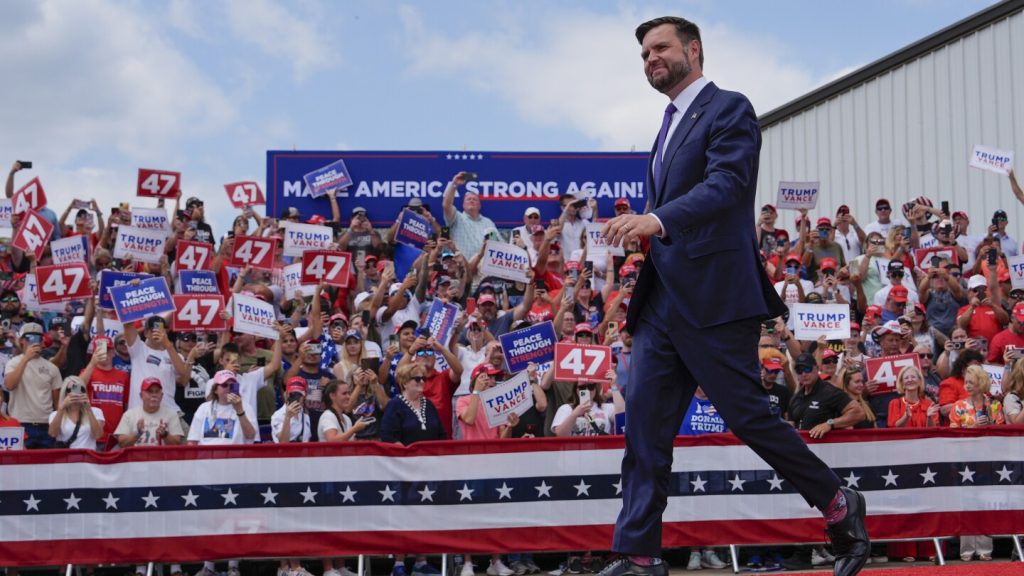Ohio Senator JD Vance’s conversion to Catholicism in 2019 has played a significant role in shaping his political worldview. This conversion has also brought him into contact with a lesser-known Catholic intellectual movement called postliberalism, which is gaining attention as Vance rises to the national stage as the Republican vice presidential nominee. Postliberalism is a movement primarily among Catholic intellectuals that rejects both the progressive left and economic liberalism, in favor of a more muscular government controlled by those who share their views.
Vance has aligned himself with the postliberal movement, speaking alongside prominent postliberals, meeting with them privately, and expressing support for their ideas. This movement advocates for regime change to overthrow what they see as a corrupt liberal ruling class and establish a postliberal order. While some critics have raised concerns about the authoritarian leanings of postliberalism, Vance has embraced its principles, calling for a more assertive use of power by his allies and advocating for the control of institutions by those who share their beliefs.
Postliberalism has a following among influential Catholic professors and writers, with Vance being a notable member of this movement. While some Catholics, including conservatives, have expressed reservations about Vance’s association with postliberals, others see his rise as a sign of the movement’s growing influence. Postliberals have various goals, including promoting childbearing, eliminating church-state separation, and supporting policies that strengthen the middle class. They have drawn inspiration from leaders like Hungary’s Viktor Orban, who has championed an illiberal democracy.
Vance’s Catholic faith has played a significant role in shaping his political views, emphasizing the importance of individual moral responsibility and social reform. While Vance has downplayed the influence of his Catholicism on his policy-making, he remains a strong advocate for issues like abortion restrictions. However, Vance’s stance on abortion has evolved, aligning with the Republican Party’s shifting platform on the issue. Despite his Catholic beliefs influencing his thinking on certain issues, Vance acknowledges that there are aspects of Catholic teaching that may not align with the views of the American public.
As Vance’s political career continues to evolve, questions arise about whether he would advocate for postliberalism as vice president. While Vance has been influenced by postliberals, he also maintains other influences and is not necessarily bound to follow all their ideas. Observers point to examples like Florida Governor Ron DeSantis’ efforts to reshape institutions using state power for postliberal ends. While Vance’s association with postliberalism may raise concerns for some, his position as a prominent political figure reflects the increasing visibility of this movement in American politics.


